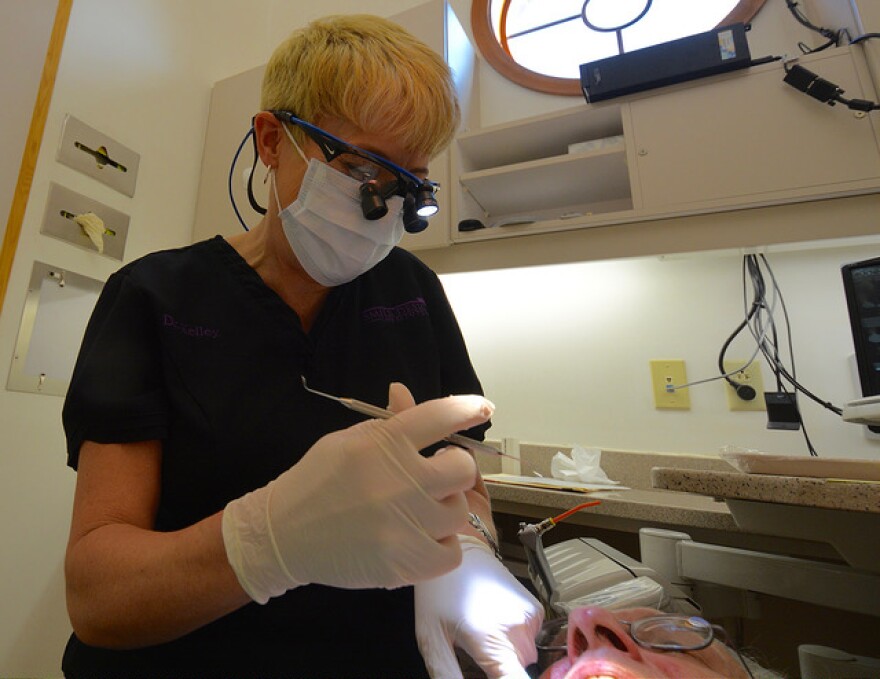Research underway at Washington University seeks to reduce antibiotic use by focusing on a prescriber who doesn’t get too much attention: your local dentist.
Over time, the widespread use of antibiotics in medicine and agriculture has led to the evolution of bacteria that are resistant to many modern medicines. This past spring, U.S. scientists discovered in the urine of a patient in Pennsylvania a strain of E. coli resistant to colistin, the antibiotic of last resort. Though the infection was successfully treated with other antibiotics, public health authorities warned that the presence of the gene means that bacteria resistant to all known treatments could eventually emerge.
A big part of slowing down the progression of antibiotic resistance is to reduce how often they’re used. But until recently, most efforts to reduce the use of these medications didn’t target dentists, even though they are the fourth-most frequent prescriber of antibiotic courses, said Dr. Mike Durkin, an infectious disease specialist at Washington University. (Family practice doctors, pediatricians, and internists are 1, 2 and 3.)
This story comes from St. Louis Public Radio
“Most of the dental research on antibiotic use has been focused on reducing the risk of complications. Very little research has actually been performed to analyze how dentists are prescribing antibiotics,” Durkin said. “I think it’s largely because we didn’t expect them to be as high of utilizers as they actually are.”
Dentists write about 10 percent of all antibiotic prescriptions in the United States, according to a study last year by the Centers for Disease Control and Prevention. Since then, the American Dental Association has updated some of its recommendations for antibiotic use in certain cases, including when caring for patients with certain heart conditions.
Dr. Michael Hoffman, a St. Louis dentist who is not affiliated with Durkin’s research, said superbugs are already affecting his work. He’s called in to the hospital almost weekly now, for patients who present with dental abscesses or other infections that are resistant to front line antibiotics and require intravenous treatment.
“The last patient I treated over there was in the ICU with their infection,” Hoffman said. “Ten years ago, I’d maybe get one call a month.”
In Hoffman’s opinion, two things need to happen. First, patients need to see their dentist regularly to avoid infections in the first place. At the same time, the American Dental Association needs to develop better guidelines for when antibiotics are appropriate.
“It gives the dental community some basis on which to prescribe, and not doing it out of defensive medicine,” Hoffman said.
Generally, dentists prescribe antibiotics to patients with tooth abscesses and other inflammations, or if they’re undergoing surgery. Using prescriber data from Express Scripts, a St. Louis-based pharmacy benefit manager, Durkin and his colleagues hope to find ways to reduce unnecessary prescriptions.
“To figure out who’s prescribing some of these antibiotics, how often they’re appropriate, how often are they inappropriate, and also to educate patients,” Durkin said. “If you probably have a viral infection, it’s unlikely that you’ll benefit from antibiotics, and they may be harmful.”
At least 2 million people are infected with bacteria that are resistant to antibiotics each year, according to the CDC. At least 23,000 patients die as a direct result of those infections.





